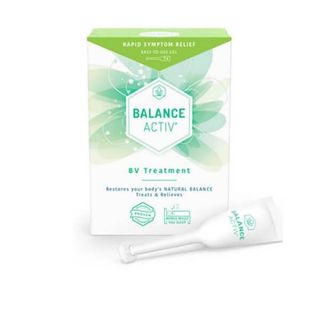
Bacterial Vaginosis (BV)
If you notice a strange vaginal discharge with a distinct fishy odour, especially after sexual intercourse, it might be Bacterial Vaginosis (BV). It’s not an STI and is actually caused by an imbalance in your vaginal bacteria but it can make you more prone to infections. The good news is BV is easy to treat with antibiotics or pH-balancing creams and gels. If you notice symptoms, don’t be embarrassed – just get checked out and with the right treatment you’ll start feeling more comfortable soon. Let’s take the first step towards relief and restore your comfort and confidence together.
Bacterial Vaginosis (BV) Treatments
 Balance Activ BV Treatment Gel£9.192 reviews
Balance Activ BV Treatment Gel£9.192 reviews- Best seller
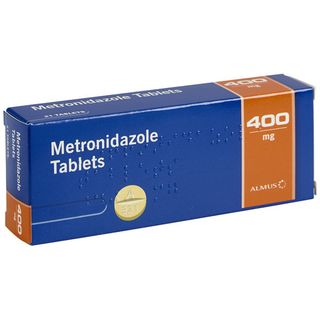
Metronidazole Tablets
Metronidazole 400mg Tablets£17.99247 reviews - Out Of Stock
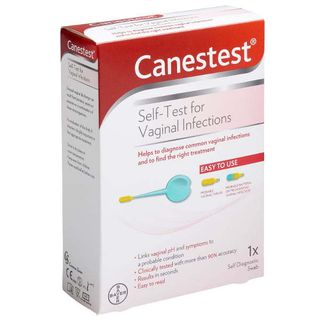
Canestest
Canestest7 reviews - Out Of Stock
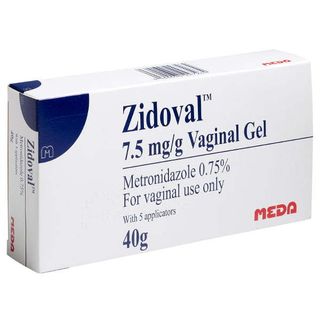
Zidoval Vaginal Gel
Zidoval Vaginal Gel23 reviews - Out Of Stock
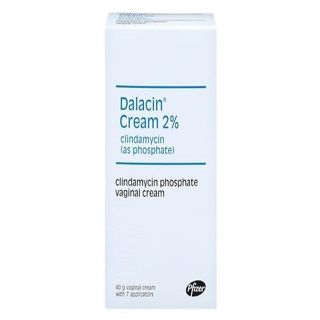
Dalacin 2% Vaginal Cream
Dalacin 2% Vaginal Cream - Out Of Stock
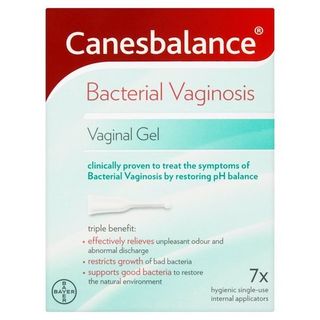
Canesbalance BV Vaginal Gel
Canesbalance BV Vaginal Gel
Start your assessment for Bacterial Vaginosis (BV)
Don't wait to get the medical help you need.
Once you complete a short online assessment about your condition, you will be able to select your preferred treatment and quantity from a list of appropriate options for you.
Reviewed by our UK-based medical team
Takes less than 3 minutes to complete
Approved treatments dispatched same day (before 3pm)
Ordering as easy as 1, 2, 3
1. Find the ideal treatment
We can provide over 1099 leading medicines to treat over 94 conditions.
2. Get a free consultation
Our qualified healthcare professionals will assess your condition and needs.
3. Enjoy speedy delivery
And when the time comes to re-order, it'll only take a couple of clicks.
Advice for Bacterial Vaginosis (BV)
What is Bacterial Vaginosis and what causes it?
Looking for advice and treatment for bacterial vaginosis? Check out our range of medication and expert guidance at The Independent Pharmacy. We offer treatment at competitive prices with fast, secure, and discreet online delivery straight to your door. Bacterial vaginosis is the most common cause of vaginal infection in women of childbearing age. Don’t suffer in silence – get your treatment from The Independent Pharmacy today.
Bacterial vaginosis (BV) occurs when the balance of bacteria inside the vagina is disrupted, similar to how a yeast infection is caused by a fungal imbalance. In most cases, BV does not cause any pain or itching. The most common symptom is an unusual vaginal discharge.
What causes BV?
The vagina is naturally a slightly acidic environment. This is due to a bacteria called lactobacilli. Lactobacilli produces lactic acid and the resulting acidity prevents vaginal bacteria from growing and reproducing. Women presenting with bacterial vaginosis tend to lack sufficient numbers of lactobacilli, which means the vagina isn’t acidic enough to prevent other bacteria from growing. It’s this imbalance of bacteria that causes BV.
It is not clear what exactly causes the imbalance that results in bacterial vaginosis, although certain factors are known to increase the chances of developing BV. These include:
- Being sexually active, especially if you have a new sexual partner or multiple sexual partners
- Using an intrauterine device such as a contraceptive that fits inside the womb
- Using scented soaps, bubble baths, or antiseptic bath liquids
- Using vaginal deodorants
- Using a strong detergent to wash your underwear
Bacterial vaginosis may sometimes be grouped in with sexually transmitted diseases such as chlamydia or herpes, but this is inaccurate — even women who aren’t sexually active can develop bacterial vaginosis, and it cannot be passed on. Also, the rates of BV are significantly varied within different ethnic groups, which cannot be explained by sexual activity alone.
However, it is apparent that BV symptoms are reported more frequently by women who have intercourse regularly with multiple sexual partners. In contrast, the rates of BV are lower in women who practice safe sex with fewer sexual partners. Clearly, sexual activity has a role to play in developing bacterial vaginosis, although several other unrelated factors are also likely to be responsible. In any case, it’s always best to practice safe sex to avoid contracting bacterial vaginosis (BV) or any sexually transmitted infections.
What are the symptoms of BV?
A sufferer of bacterial vaginosis is likely to experience the following symptoms.
Vaginal discharge that:
- Has a strong fishy odour that is particularly strong after sexual intercourse
- Is white or grey in colour
- Is thin and watery
Other (rarer) symptoms of bacterial vaginosis may include:
- Vaginal itching
- Burning during urination
Bacterial vaginosis does not pose a serious threat to health for the majority of sufferers. In fact, around half of those affected with BV don’t present any symptoms at all. BV should only be treated as a concern should the condition develop during pregnancy and there is a history of pregnancy-related complications.
Though commonly confused, BV and yeast infections are two entirely different conditions. In a yeast infection (usually referred to as thrush), vaginal discharge will have the consistency of cottage cheese, and present no odour. For more information, visit our thrush condition page.
How is Bacterial Vaginosis diagnosed?
Your first case of BV should always be diagnosed by your doctor or a healthcare professional. They will be able to rule out other causes of the symptoms such as thrush, chlamydia or gonorrhoea and ensure you get the correct treatment. Once your first case of BV has been diagnosed, subsequent episodes can be self-diagnosed as long as the symptoms are exactly the same as the previously diagnosed case. Repeated BV infections should be examined by your doctor to treat any underlying cause.
A GP or healthcare professional will be able to diagnose bacterial vaginosis from a description of the symptoms coupled with a visual examination of the vagina, if necessary. In the examination they will be looking for a thin, greyish discharge as well as an unpleasant smell. In most cases this will be enough to confirm a diagnosis. However, further testing may be necessary if you are sexually active. This is because the symptoms of BV can resemble the symptoms of some sexually transmitted infections (STIs), such as gonorrhoea and trichomoniasis. Further testing will usually involve a sample of cells being taken from the vaginal wall. This will be done using a plastic loop or swab. This sample is then examined in a laboratory to look for signs of bacterial vaginosis.
Another method of diagnosing BV may include performing a pH (acidity) test of the vagina. A swab will be used to take a sample from inside the vagina. This sample will then be wiped over a piece of specially treated paper. The paper will change colour depending on the pH level of the sample. If the paper indicates a pH higher than 4.5 then this will be a strong indication that bacterial vaginosis is the cause. You can use a Canestest home BV test to diagnose your condition in the privacy of your own home.
How is BV treated?
Bacterial vaginosis can be successfully treated using antibiotics. The antibiotic of choice for BV treatment is metronidazole. The first-line treatment for BV is normally Metronidazole 400mg tablets for a seven day course, taking one 400mg tablet twice a day. There is also the option for metronidazole vaginal gel - Zidoval - which is a five day course. Occasionally a different antibiotic may be more suitable if the patient is allergic or has had a bad reaction to metronidazole in the past. Clindamycin cream is usually used as an alternative treatment if this is the case.
When taking Metronidazole 400mg tablets for BV it is very important to complete the course, even if the symptoms have subsided. Finishing the course will help reduce the risk of the symptoms persisting or returning. When taking Metronidazole 400mg Tablets it is very important not to drink any alcohol during the course, and for at least 48 hours after completing the course as this can cause serious nausea and sickness.
Some women may require an additional course of Metronidazole should the initial course be unsuccessful. This is quite normal. It is important to check that the medicine was taken correctly as a further course or an alternative treatment will be required.
If the bacterial vaginosis is believed to be the result of an intrauterine device, such as a contraceptive diaphragm, then it may be advised to have it removed and an alternative means of contraception should be used instead.
There are treatments available known as vaginal pH correction treatments. These topical gels are available over-the-counter and are designed to rebalance the pH levels inside the vagina. An example of a pH balancing gel is Balance Activ gel. It is generally acknowledged that treating bacterial vaginosis with Metronidazole is more effective than using a pH balancing gel.
How can I prevent BV?
Not fully understanding the causes of bacterial vaginosis means it is very difficult to completely prevent it. However, there are self-help techniques that can reduce your risk of developing the condition. These include:
- Avoid using scented or perfumed soaps, antiseptics or bubble baths
- Avoid using vaginal deodorants
- Avoid washing your underwear in strong detergents
- Avoid vaginal douching
By following the recommendations above you will be less likely to disturb the natural bacterial balance inside the vagina. This will reduce the chances of developing bacterial vaginosis.
Alternatives
Non-prescription treatments are also available to purchase online.
Canesbalance Vaginal Gel and Balance Activ Gel help to relieve the odour and abnormal discharge associated with BV.
Bacterial Vaginosis (BV) FAQs
BV doesn’t tend to cause any sores or blisters, but instead causes an abnormal discharge. If you are suffering from sores or blisters, seek the advice of a medical practitioner.
Both UTIs and BV are common bacterial infections. However, a UTI is the infection of the body’s urinary system (involving the bladder, kidneys and/or the tracts that connect them), while BV is an infection of the vagina due to imbalanced naturally occurring bacteria. Both of these conditions can cause permanent complications if not treated properly, particularly in pregnant women. However, BV does not directly cause UTIs – they are separate conditions with separate causes.
Vaginal bleeding and sores are not symptoms of BV, but should be seen by a medical practitioner, as they may be caused by another condition.
BV may have some similar symptoms to yeast infections, such as a foul odour and discharge, however, BV is not a yeast infection.
Serious cases of BV, that are left untreated, can spread from the vagina into the uterus and fallopian tubes. This condition is known as pelvic inflammatory disease, and this can damage a patient’s fertility by preventing sperm from reaching the egg.
BV is not contagious – it’s an infection caused by an imbalance of bacteria in the vagina. However, having BV does increase a woman’s susceptibility to STIs.
Once diagnosed, BV can be treated with antibiotics, creams, topical and internal treatments to reduce bacteria. However, there is no permanent cure for BV – it can return at any point in a woman’s life when the vagina hosts imbalanced levels of bacteria.
Users of the intrauterine device (IUD) may be at increased risk of contracting BV. IUDs may alter the natural levels of bacteria in the vagina.
Studies have found some links between BV and problems during pregnancy, such as the risk of having a low-birthweight infant or delivering a preterm baby. There is no solid evidence to suggest that BV can directly cause miscarriage, however, you should consult your doctor if you are suffering from BV and are pregnant.
Guides for Bacterial Vaginosis (BV)
Can You Give BV To Your Male Partner?
What Is Metronidazole?
Metronidazole Side Effects: Everything You Need To Know
Metronidazole And Alcohol: Side Effects & Safety Concerns
Using Metronidazole In Pregnancy: Everything You Need To Know
We've written 5
more guides
for Bacterial Vaginosis (BV)
We also offer health & advice tailored to you.



